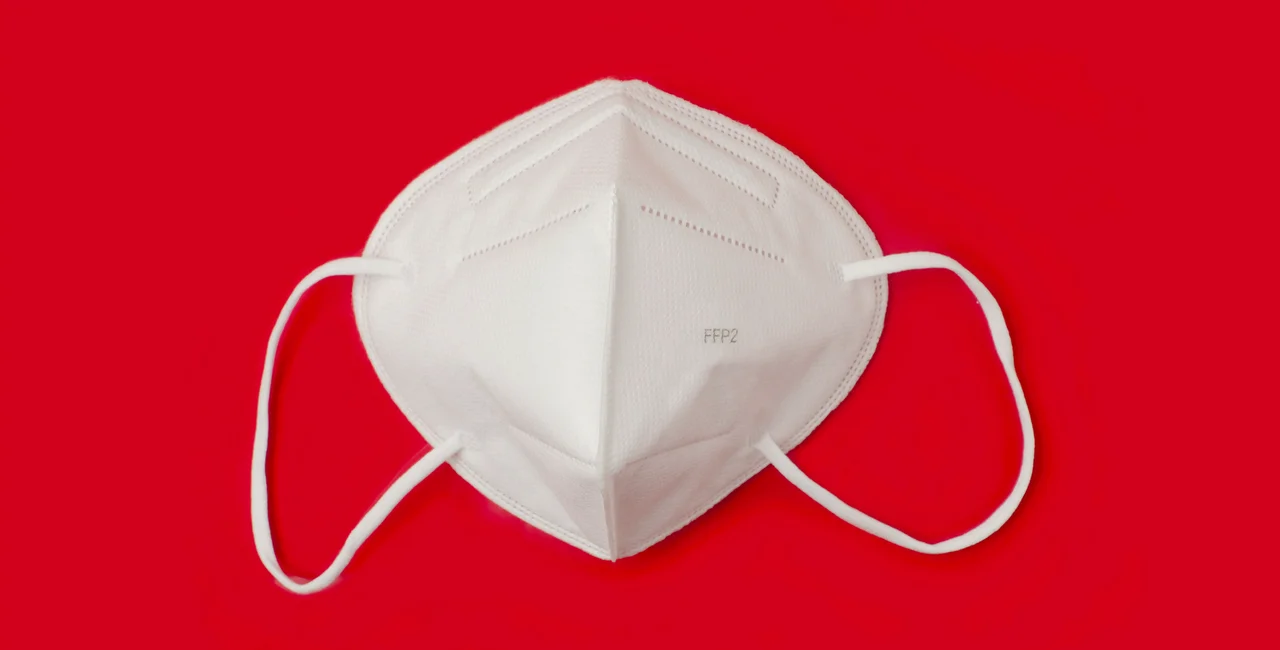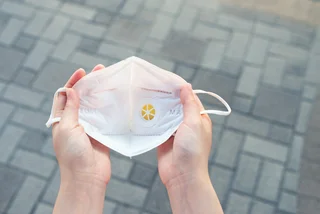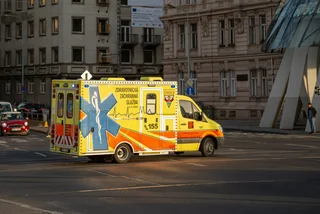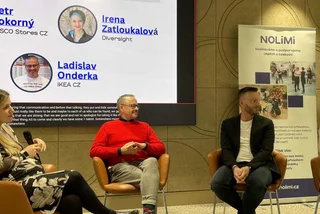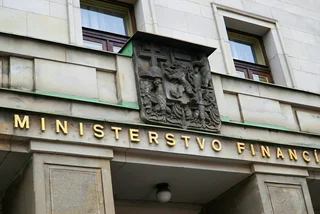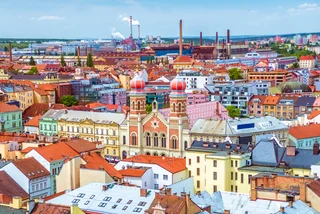In the Czech Republic, respirators have now become mandatory on public transit, in stores and at work. But not all respirators are equal. Many do not meet the European standard of FFP2, and some brands have been found to falsely claim to be certified. And while the Czech Republic still allows Chinese certified KN95 respirators, other countries are insisting on FFP2 only.
When buying respirators, people should look for instructions in Czech. Anything being sold in a Czech shop under the law should have a Czech label. Otherwise, it is not clear that the product has reached the shelves through proper import channels. People should also look for known manufacturers when possible.
FFP2 versus KN95
In the Czech Republic, the Health Ministry allows respirators meeting either the European standard FFP2 or Chinese standard KN95 in places where they are required. Neighboring Austria, though, only allows FFP2 respirators, and says KN95 masks are not equivalent.
KN95 respirators were allowed on the Czech market last year due to shortages of FFP2 respirators, and can be sold until the imported supplies run out.
KN95 masks are tested to a different standard than FFP2 class respirators. FFP2 masks are tested for stopping microscopic salt particles as well as airborne droplets of paraffin wax, representing liquid in the air that could carry infections particles. KN95 respirators are only tested for stopping microscopic particles.
Vladimír Ždímal from the Institute of Chemical Processes of the Czech Academy of Sciences told Czech Radio the two standards are in fact different.
“In general, the results are comparable, but in reality the European market should be supplied with respirators tested to European standards. The Chinese ones are often a few layers 'poorer,' " he said.
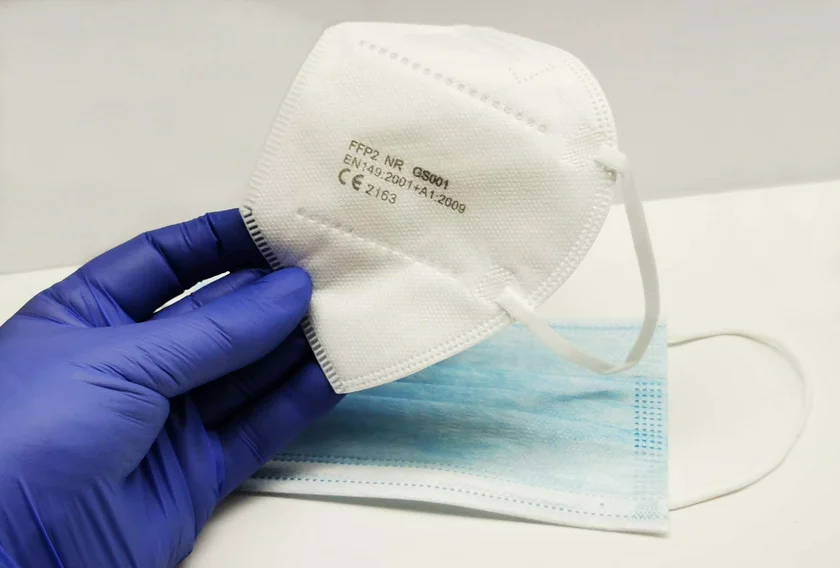
The shape of KN95 masks is also different than FFP2 masks, and some experts say it does not make a sufficient seal on the face.
Recently, there have been calls to stop the sale of respirators that don’t meet the European standard. Jan Bartošek, vice chairman and head of Christian Democrats (KDU-ČSL) group in Parliament’s lower house, on March 2 said he wants to stop the import of KN95 respirators.
“I turned to the prime minister so that the financial administration and the Czech Trade Inspection Authority check that there are no dual quality respirators on the market. It is absolutely essential that respirators bear the CE mark, which is a European standard,” Bartošek said.
Ensuring a proper fit
The European Center for Disease Prevention and Control (ECDC) says that FFP2 respirators have a filtering capacity of at least 94 percent for 0.3 micron particles, but only if worn properly. The masks require a fitting test to ensure proper protection.
“The choice of suitable respirator for the shape of a user’s face (type and size) and training to ensure that the user knows how carry out a pre-use seal check are crucial requirements for respirators to be effective. The seal check should be repeated every time a user dons the respirator,” the ECDC states.
Experts add that beards, for example, can prevent respirators form making a sufficient seal. Without the seal, the respirators lose much of their effectiveness.
Printed certification on each respirator
Certified FFP2 masks should be marked with the certification standard EN 149: 2001 + A1: 2009; the protection class of FFP2; either R for reusable or NR for single use; and the CE marking together with a four-digit number identifying the accredited testing laboratory that issued the EU certificate.
Fraudulent certification
Even when a mask is marked with the European certification, it is no guarantee. Czech non-profit consumer protection organization Kverulant.org reported respirators being sold with the CE mark that were only 83 to 86 percent effective at stopping particles, instead of 94 percent. The company in question used fraudulent certification documents.
The Czech Trade Inspection Authority (ČOI) has received several complaints but so far does not have the authority to publish a list of masks that do not meet the stated standards. ČOI spokesman Jiří Fröhlich told news server iDnes they are waiting for a final decision.
Germany’s Federal Institute for Occupational Safety and Health (BauA) has a list online of FFP2 masks sold on the German market that don’t meet standards, and some might possibly be found on the Czech market as well.
Home tests
There are two things people can do to see if their respirators meet even basic standards. The respirators should block liquid particles in the air. Small amounts of water should bead up on the surface of the respirator. If you fill the respirator with tap water, it should hold the water for several minutes without leaking or dripping.
Another test is to wear the respirator and then try to blow out a candle from a close distance. A good respirator will block sufficient airflow to blow out the flame. These tests will only reveal the poorest quality respirators, and are not a substitute for certification.
Who needs to wear them
Respirators are mandatory for people 15 years of age and older in shops, public transport, or at airports. It must also be worn in medical facilities where outpatient care is provided and in cars when members of the same household are not driving. Using two medical masks is no longer accepted as a substitute.
The lower age limit for FFP2 masks is because of the difficulty in finding them in smaller sizes that would fit a non-adult face.
Tips for buying a mask in the Czech Republic
- Respirators should be tight on the face, shouldn't gap or sag, and shouldn't be worn over beards.
- Avoid products with no clear manufacturer or without instructions in Czech.
- Respirators can be purchased in brick-and-mortar pharmacies, most major retailers, online pharmacies, grocery delivery services Košík.cz or Rohlík.cz, and Czech manufacturers such as Spurtex.cz, Goodmask.cz or BreaSAFE.
- Prices vary: in some shops and supermarkets, respirators can be purchased for as little as CZK 10 apiece, however, prices typically range from CZK 25–30 per piece.
- You can compare prices at Heureka.cz or Zboží.cz.
- Masks marked with an R are reusable, those marked NR are not reusable.












 Reading time: 5 minutes
Reading time: 5 minutes 